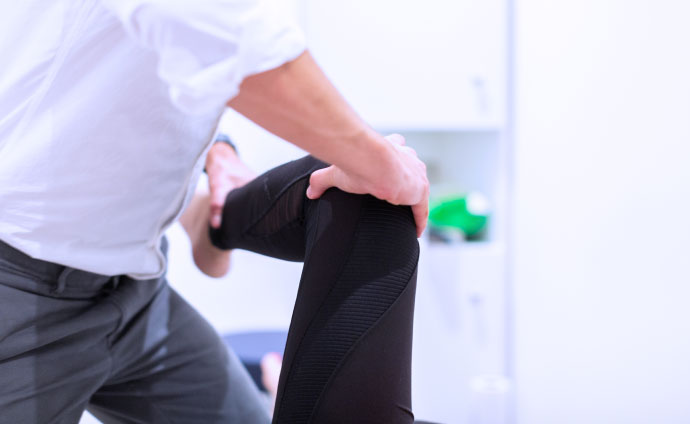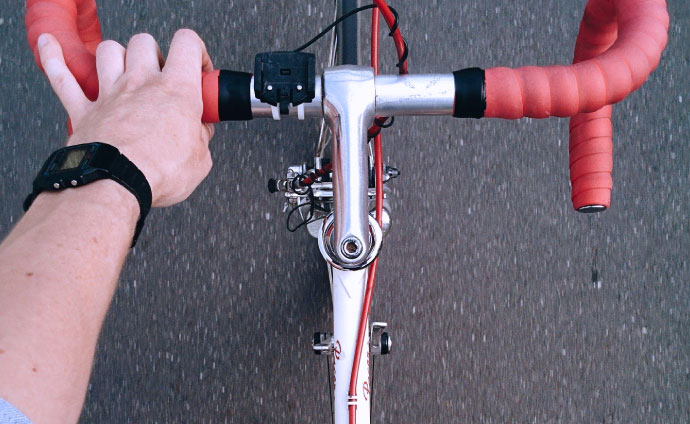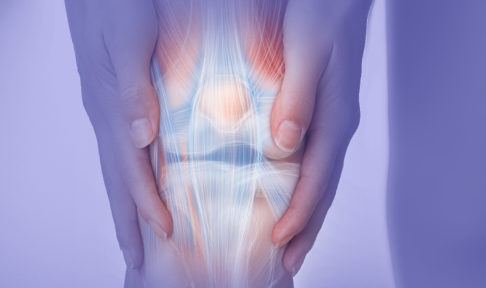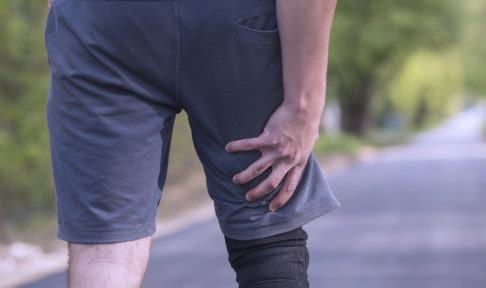Over the last few months, life is slowly starting to feel a little bit more normal for many of us in the UK, but there are some parts of society that are still feeling the pinch. And one of those is the NHS.
Our public health system is under immense strain, and while they continue to do an amazing job dealing with the ever-changing challenges the pandemic presents, they can’t always provide the fastest or most thorough follow-up for non-life-threatening conditions.
And while some injuries might not be life-threatening, swift assessment and treatment can be crucial for speeding up the healing process and avoiding permanent damage, which is where seeing a physio comes in.
London is known for having a range of beautiful cycling routes and bike paths in and around the city, making bike riding a popular activity, both recreationally and for commuters. But this also means injuries caused by bike accidents are one of the most common issues patients present with at Spectrum.
Here are some specifics about these injuries and how we might treat* them.
Impact injuries
Impact injuries are normally caused by a fall or crash and are some of the most common bike-related injuries we encounter. They could be anything ranging from bruising and swelling, through to a fracture or broken bone.
As mentioned, the NHS is often the first place you present after a serious accident, such as when you have experienced acute trauma (like being hit by a car while riding your bike). But once you have been discharged, it’s important you get the appropriate follow-up to ensure you make a full recovery and ultimately help you get back to riding your bike sooner.
At Spectrum, we’ll always give you a full assessment when you first arrive to determine exactly what damage has been done so we can provide you with the appropriate treatment. Most importantly, we can help you understand the difference between the sensations you may be experiencing, particularly if you’re looking to return to exercise. We can guide you through when you should be resting and when it’s okay to ‘push through the pain’, ultimately speeding up your overall recovery. If your injury has caused swelling and inflammation, our unique GameReady Ice Compression treatment is a great way to speed up the healing process.
If you have a serious injury like a fractured elbow, you might be at risk of it being permanently bent if it’s not treated quickly and appropriately. Another example of an acute cycling injury is a broken ankle, which is especially common in cyclists who use cleats and cannot remove their feet in time when they find themselves in an accident. Subject to the types of routes you’re riding, reconsidering whether cleats are the right choice for you is worthwhile.
And don’t forget, if you know you’re about to fall or crash, do your best (in the split seconds available to you!), to protect your body as best you can by ‘rolling into the fall’, rather than bracing for impact, which is often our natural instinct.
Even if you haven’t been in a serious accident or been involved with a specific incident, other cycling injuries can occur due to overuse, poor technique and incorrect bike setup, including:
Neck and back pain
Neck and lower back pain are common among cyclists for a number of reasons. Sometimes they can be caused by poor posture on the bike, whether it’s hunching over the handlebars of your bike, or general postural problems from sitting at a desk all day, that then flare up after time spent on the bike. We’ll likely get these sorts of issues under control with a mixture of manual treatment, mobilisations and McKenzie therapy, and the positive results will hopefully help you feel better on and off the bike!

Knee pain
Knee pain during or after cycling is often attributed to poor bike set up, so it’s worth having a proper bike assessment at your local cycling store as a preventative measure, or to correct an issue that is occurring with the way your knee is tracking when you pedal. But, if you still experience knee pain, there are a few ways we can help. If there’s swelling involved, the GameReady unit will be our first port of call, but manual therapy, sports tissue massage and rest may also be on the cards. Of course, this will all depend on what your initial assessment shows.
Thigh/hamstring pain and tightness
Your upper legs work pretty hard when you’re cycling, so it’s not unusual to experience pain or tightness in your thighs and hamstrings. Often some good stretching and foam rolling will do the trick, but if the pain persists or feels more intense than just general fatigue, it’s worth coming in for a full assessment. You may find that your hamstrings and legs actually need some strength and conditioning to avoid a strain, which is where guided exercise therapy can help. By strengthening your legs, you’ll find that you stay pain-free when cycling and recover faster after each ride.
Hand pain
One study reports that 31% of cyclists experience some form of overuse hand pain. Often the source of the pain, numbness or weakness is what is known as ‘handlebar palsy’, a condition caused by compression to the ulnar nerve. While this is a common condition, it can be very stubborn and it’s important that you seek professional treatment quickly after symptoms arise. Normally we’ll prescribe hand strengthening exercises, and a TENS Machine may be used in cases where feeling has been lost, to try and stimulate the nerves and speed up recovery.
Are you thinking of taking up cycling? Or perhaps you’re already an avid cyclist. If you find yourself feeling sore after cycling or are in an unfortunate accident, don’t delay in being assessed by a professional physio.
We guarantee appointments within 24 hours, so please contact us and we’d be happy to help.




